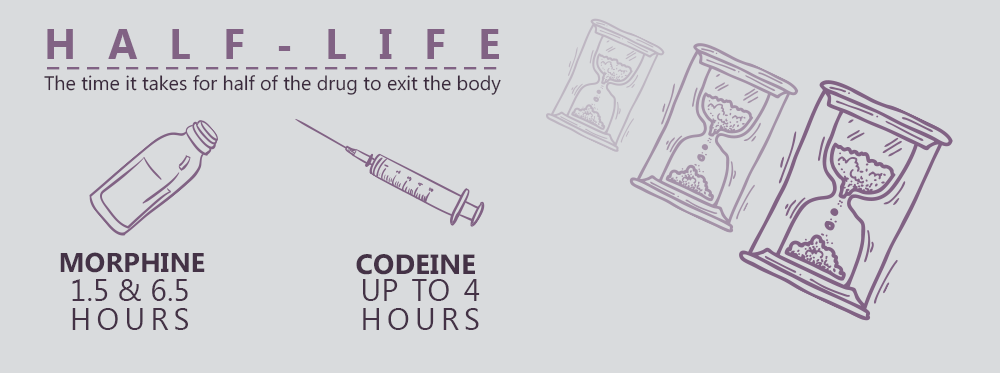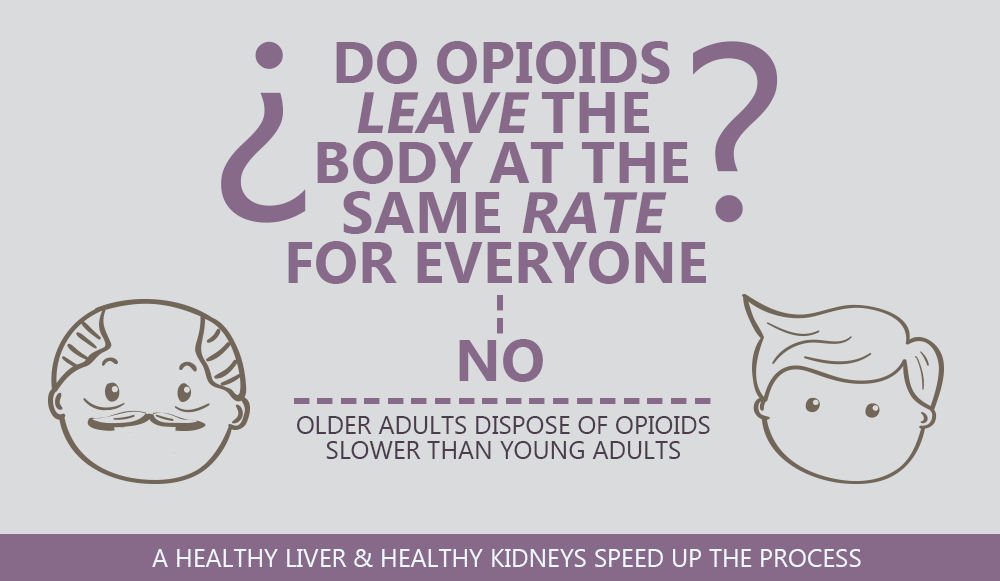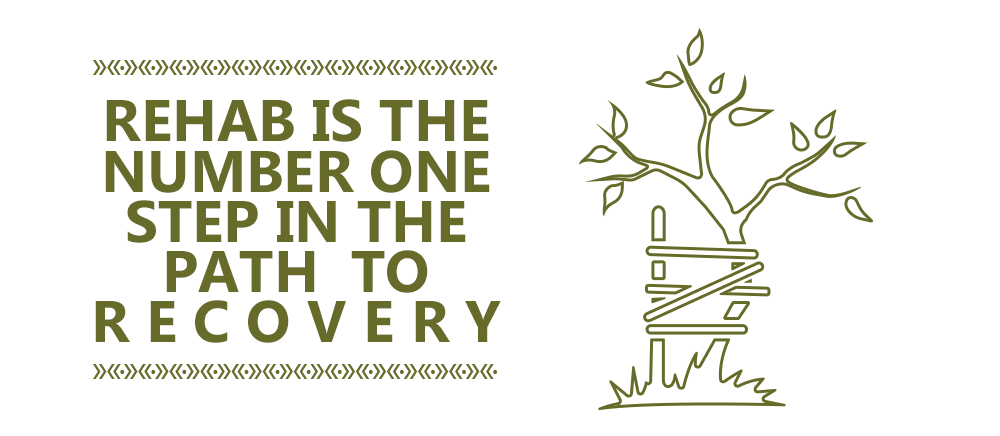Location
Our Washington Location
Our inpatient facility is located in Washington, and will serve Washington state. It will provide a safe & therapeutic environment for both our staff and patients.
- Edmonds
7416 212th St SW,
Edmonds, WA 98026
Do you think that you may have become addicted to your opiate medications? Maybe you've read some information about these drugs, and you're feeling nervous. You know they're addictive, and you are concerned about stopping yours. Unfortunately, people don't receive enough education when they start taking painkillers. They may be warned about addiction, but they don't think it could ever happen to them.
You may be facing a situation right now where you fear you do have an addiction. If you do, you need to know, how long do opiates stay in the system? This is important because it will help you to understand what withdrawal will be like. Stopping the use of these drugs is dangerous when you attempt it on your own. This is something that is best left for professional treatment.
First, let's go over how long opiates stay in the body. We'll discuss abuse and addiction, as well as answer many of the more commonly asked questions about painkillers. You'll also learn more about where you can find treatment so that you can recover.
If you have been using an opiate drug, it makes sense to want to know how long they stay in the body. However, the answer to this question is a difficult one.

How long opiates stay in the body depends on what type of drug you are taking. It also matters how much of it you're taking. To know more, you should look at the half-life of your current painkiller.
A drug's half-life means how long it takes for half of the drug to leave the body. Once you understand half-life, it's easier to determine when opiates will be out of your system. For example, for morphine, the half-life is between 1.5 and 6.5 hours. For codeine, the half-life is as long as 4 hours.

Opiates can still be detected in the body, even after the drug is technically out of the system. As they leave the body, they do lead to withdrawal symptoms. These can be very hard to deal with.
There are different types of tests that are typically used to check for opiates in the body. There are different situations when these tests might be used. Also, some are used more often than others due to their accessibility and effectiveness.
When you use multiple substances at the same time, you need to expect for both half-lives to be affected. This is because your body can only process so much at one time. Both your kidneys and your liver are working hard to expel toxins from your body.
For example, people will frequently abuse their prescription opiates and drink alcohol together. Not only is this combination dangerous, but it will also take longer for both drugs to be processed out. If you have been abusing your pain medication and drinking or taking other substances, this is something to keep in mind.

Opiates are often tested for with the use of a blood test. These drugs are quite potent, and they reach the bloodstream quickly. They can remain in the blood for between 12 hours and one full day. It’s important to note that a positive test might not occur before that 12-hour mark after the final dose. Before that time, there may not be enough of the drug in the bloodstream to detect it. Unless, of course, the individual is a chronic painkiller addict or user.
You would usually only come across this type of test in a hospital setting. However, if you’re taking a drug test because of a job, and you fail, it may be checked via a blood sample.
There are some instances where a saliva test for opiates may be the appropriate option. Saliva tests are quite accurate for these types of drugs, and they can stay positive for a long time. For someone who has used a pain reliever, a saliva test will show positive results for four days. This can make it a good, non-invasive tool for professionals needing to test for them.
You may encounter a saliva test for opiate drugs if you are pulled over by the police. This type of test is very easy for them to perform in the field. However, not all officers may have access to this type of technology.
Urine tests are usually the most widely used test for opiates in the system. However, it might be difficult to detect when a positive test might occur after the final dose. This can depend on how much was taken and whether or not the individual is a chronic user. Of course, multiple doses of them will also lead to positive urine tests.
A urine test for opiates will be positive for three days after the last dose has been taken. You’re very likely to encounter a urine test in multiple different settings. They are commonly used by employers and in drug treatment centers. It’s non-invasive, and the results are generally quite accurate.
Hair tests can be quite accurate to test for opiates. This is because these drugs tend to leave the body more quickly than other drugs do. Fortunately, hair can tell quite a story about someone's pain pill use history.
It can take a few days or even a week before opiates will show up in a hair sample. However, once they do, the test will stay positive for as long as 90 days. For this reason, a hair test might be good if negative results have been gotten on other tests.
Some drug rehab centers may want to use hair tests to check for long-term opiate use. This is a great option for them because the test will stay positive for so long.

Perhaps you've been taking opiates for a long period of time. Yet, you aren't sure if you're addicted to them. It's important to differentiate between addiction and abuse.

Someone who is an addict will take the drugs every day. He or she may be convinced that living without them is impossible. In fact, this person’s entire life revolves around using opiate drugs. They obsess about them, and always make sure they have enough on hand.
If you can relate to this, then you are most likely an addict. However, it's important not to get this confused with abuse.
Opiate abuse is when someone is using these medications in an inappropriate way. This can mean taking too much of the drug. It can mean taking doses too closely together. Some people will even chew the pills or crush them and snort them for the high they produce.
Even so, if this is done recreationally, and not because of a compulsion, it's not considered to be addiction. This type of use does not require rehab. However, counseling is highly recommended, and can actually help to avoid an addiction from taking place.
The most important lesson for you to learn is this – all addictions begin with abuse. No one intends to become addicted. However, with prolonged use of a drug, it will occur eventually. The only way to keep yourself from becoming an addict is to stop before it happens.
You may have a loved one whom you suspect is abusing their opiate medication. This can be very frustrating for you, and you might be very worried about their safety. The problem with painkiller abuse is that it’s not always easy to see. It’s very simple for people to take pills, and it’s hard to know if they’re doing it properly.
It’s important to know what signs you should look for if you suspect pain pill misuse. Some of the more common signs of opiate abuse include:
It can be very difficult when you think someone you love has been abusing their pain medication. However, the situation doesn’t have to be hopeless. It’s important to have an open discussion about the issue with your loved one right away. If they are addicted to their medication, offer to get them help to recover. If they refuse, you may want to think about obtaining intervention services.
People who are addicted to opiates usually have many signs of addiction. These can include:
If you notice any of these within yourself, you may have an opiate addiction. Or, it's possible that you're still not completely sure. This really isn’t all that uncommon. Many people fail to understand what it means to be dependent upon a drug. They have a hard time recognizing when they have a problem. If this is the case for you, you may want to use other measures to get the answers you need.
You may want to take an opiate addiction quiz to give yourself some more information. This can help you determine if you're abusing or addicted to them.
After going over the above information, you may recognize that you do have an opiate addiction. This thought might make you feel scared. You didn't intend to become addicted. Most people don't. However, it's important for you to know that the situation you’re in is very dangerous. Many people will turn to heroin when they are no longer to get prescriptions for their pain pills. This isn't something we'd like to see happen to you.

Opiate treatment is available to help you reach your recovery goals. It’s gives you the best chance of being successful long-term.
Now that you know more about how long painkillers stay in your system, you may have even more questions. We’d like to take this opportunity to answer them for you.
An opiate drug is a narcotic medication that has been created in a lab. They can be made from opium, which comes from poppy plants. They can also be derived from semi-synthesized alkaloids.
These medications are FDA approved, usually for the treatment of pain. They act on the central nervous system and function as depressants in the body. They work by blocking the sensations of pain when they reach the brain. They are very effective, but they’re also easily abused.
Doctors can keep their patients on them for years, which can lead to an accidental addiction. However, it’s also possible to get opiates on the street, online, or even from friends and family.
You have probably seen the words opiate and opioid used interchangeably. Some medical professionals will even use them to mean the same thing. There are some similarities, but they are different types of drugs.
An opioid drug means any drug that acts on the opioid receptors in the brain. However, this term should be used to describe those that are naturally occurring. For example, opium falls into this category.
An opiate drug is one that is derived from the poppy plant or that is synthesized from it. These drugs are legal, and they’re made in a lab for the purpose of treating pain, primarily.
Both opioid drugs and opiates are considered to be narcotic. This means that they are controlled substances, and in some cases, may be illegal. Heroin and opium are illegal opioids. Any use of a prescribed pain reliever without a prescription would also be considered illegal.
Almost everyone who has ever used an opiate drug has done so legally. Most of the time, people get their prescriptions from a doctor because they have moderate to severe pain. This is an accepted use of these medications.
However, there are many cases when people will eventually abuse their pain pills. Some may recognize the fact that using an opiate drug produces a sensation of euphoria. This may drive them to take their medication more often than they should.
Many times people will obtain these drugs from friends or family members. This is common among teens that abuse opiates. In fact, there has been an increase in the number of teenagers abusing Oxycontin over the last few years. Most of the time, they’ve stolen medications right from their parents’ medicine cabinet. Other times, they’re given the medication by their friends for the purpose of getting high.
People can abuse their opiate medications in a number of different ways. It usually starts because they begin taking too many of the drugs at one time. Eventually, this may progress into taking doses that are too close to one another. However, that’s rarely where it ends unless something is done to stop them.
It is possible for people to crush their pain medications and then snort them. This isn’t quite as common as it once was, which is great news. Today, many drug manufacturers have started making the pills so that they’re more difficult to break. Although people will frequently dissolve the pills in water or another liquid and inject them. They may also simply chew the pills, or combine them with alcohol to enhance the high.
If you are using opiate drugs in any other way besides swallowing the appropriate dose on a schedule, it’s abuse.
Unfortunately, doctors frequently prescribe the drugs on this list to treat their patients’ pain. Vicodin is among the most widely prescribed opiate drug in the United States. It’s easy to see why there are so many people addicted to it.
Many people don’t realize that prescription opiates are closely related to heroin. If you take a look at the chemical compositions of morphine and heroin, they are close to identical.
There are a lot of problems with maintaining an opiate addiction long-term. It’s usually not a very sustainable habit. The only exceptions are if you have a doctor willing to prescribe them, or you are purchasing them illegally. It generally doesn’t take long for people to recognize that there are more benefits to using heroin instead.
Heroin is much cheaper than prescription painkillers when you’re purchasing them illegally. Some would even say that it’s easier to obtain illegal opioids than it is to get legal ones.
The National Institute on Drug Abuse offers several statistics regarding this connection. They state that in 2012, there were 2.1 million people suffering from opiate addiction. During that same year, there were close to 500,000 people addicted to heroin. Their suggestion is that many of those individuals started by abusing painkillers first.
As you can imagine, feeling this way might make it difficult for you to stop using. Most people will go back to taking their painkillers again just to get some relief. This causes a few different problems. It contributes to the addiction cycle, and it also can put them at risk for an overdose.
You will need to go through a pain medication detox in order to recover from your opiate addiction. This is going to help you get through the withdrawal period and give you a better chance at being successful overall.
It’s normal to be nervous about detoxing from opiate drugs. Many people are. They’re afraid of facing withdrawal symptoms, and that’s completely understandable. However, when you detox in a professional setting, you get the benefit of medical care.
You may find that a medical taper is necessary for you, and this will help to lessen the severity of withdrawal. Tapering your opiate medication allows you to take less and less of it as time goes on. Please don’t attempt to do this yourself. It’s very important that you follow a strict medical schedule.
Once you’ve gotten off the medication, you may be able to participate with a medically assisted detox. This means that you will be given other medications to help you with your symptoms. There are several drugs that have been approved by the FDA for this purpose. Suboxone and Vivitrol are two of the most popular ones that have shown a lot of promise.
You’re going to find that a professional detox is much easier on you that trying to quit alone. The staff will monitor you constantly for any complications or serious medical emergencies. However, your risk for them will be significantly lowered. You’ll also get through withdrawal faster and feel better sooner.
Every day, there are thousands of searches online regarding how to safely detox from drugs. It’s assumed that it’s possible to cleanse yourself from opiates on your own, without any medical help. This is extremely dangerous, and any attempts at it should be avoided.
You can visit many pharmacies in the United States and find several products that promise great results. There are drug detox cleanses and kits available for purchase in stores and online. Some may even indicate that opiates can be removed from the system within 24 hours.
You should never trust these products. You could be taking your own life in your hands if you do. At the very least, please talk with your doctor about getting off your opiate medications. They should be able to offer you some guidance and direction to help you do it successfully. However, don’t be surprised if they recommend an inpatient prescription painkiller detox program.
Once you have detoxed, it may seem as though the hard work is finally over. You may feel a lot better than you did before you started your treatment. However, you need to know that your recovery journey should never end with detox.
When you suffer from an opiate addiction, your condition is very delicate and extremely complicated. The physical aspect is important to address first. However, if you stop there, you’re only setting yourself up for failure.
It’s very important for you to continue to get help at an opiate rehab center. Going to drug rehabilitation is going to be critical for you. It’s essential for you to also address the mental part of your addiction. If you fail to do this, you’re likely to end up relapsing. By getting further treatment, you will be working on understanding the cause of your addiction. Once you learn what the cause is, you can get the help you need to heal.
There are several ways that you can get treatment if you have an addiction to opiate drugs. Keep in mind that everyone recovers differently. The type of help that you need might not work for someone else, even if they have the same addiction as you. It’s important for you to know the different options that are available to you.
Inpatient Rehab – Many experts consider inpatient drug treatment to be the best way to recover from an addiction. This is because it effectively removes the addict from their home and prevents a relapse. Instead, they are surrounded by staff members who can help them get through this difficult time. An inpatient program offers excellent support. Treatment will usually last for about 30 days. During your stay, you’ll be receiving many different types of therapy.
Intensive Outpatient Treatment Programs – An intensive outpatient program is often referred to as an IOP. This type of rehab allows you to live at home while you get the help you need. It’s a flexible program, but you are required to attend several appointments throughout the week. It’s very important for you to never miss your appointments. Continuing in the program requires your absolute compliance. Interestingly enough, many addiction treatment professionals believe that IOPs are just as effective as inpatient treatment.
Long-Term or Residential Rehab Centers – In some cases, going to an IOP or an inpatient facility isn’t sufficient for opiate recovery. There are those who end up relapsing after going to inpatient treatment, or they may be long-time addicts. In either of these cases, a residential rehab program might be better suited for them. This is a long-term facility that may be called a sober living home. Sometimes they have their own in-house treatment. Other times, patients are required to attend an IOP in the area. You can stay for several months at one of these facilities.
Outpatient Rehabilitation – An outpatient drug treatment program is usually best saved for those who have successfully completed inpatient rehab. The amount of time you will spend with staff members is quite limited. You may only get to see your therapist once a week without any type of support group. However, once you’re ready for it, outpatient rehab will eventually work very well for you.
Day Treatment Facilities – A day treatment program is another type of outpatient rehab. However, instead of having appointments in the evening, you’ll have them in the morning and afternoon. Patients attend this type of rehab for varying hours throughout the day, depending on what they need. You may be required to attend for anywhere between two and eight hours each day.
If you are participating in opiate abuse, and you’re not addicted, you probably don’t need rehab. However, that doesn’t mean that you should simply ignore the issue, hoping that it will go away. In fact, if you do, you may eventually get addicted. Sadly, this is the outcome for most people when they abuse their pain medications. It’s important for you to find out why you became addicted in the first place. You may think that you know, but most of the time, people aren’t correct in their assumptions.
If you’re abusing, you should try to find a therapist who specializes in drug abuse. That person will be able to work closely with you to determine the cause of your problem. You may learn something about yourself that you never knew before. Once you know the reasons behind it, you can begin the healing process so you can stop. This could potentially help you avoid becoming addicted.
It may be necessary to test for a number of different reasons. If you are in a car accident, you may be given a test at the scene of the crash. If you are admitted into the hospital for a medical problem, they may also test for them. You should be expected to receive a test if you’re participating in any type of outpatient drug treatment program. Many employers will require new hires to complete a substance abuse screening before offering employment. You could also be tested again randomly after you’re hired.
If you’re using opiate drugs, it’s important to know when you should expect to be tested. If you’re addicted to them, you need to know how long it takes before you will test negative.

At Northpoint Washington, we want you to know you're not alone. Opiate addiction is growing quickly in the United States. There are so many people battling it alongside you. However, it's not a battle you need to fight on your own. We can provide you with the assistance you need to recover successfully.
Have we adequately answered your questions about how long opiates stay in the system? If we have, we’d like to hear your thoughts. Please feel free to contact us for more information.

Our admissions coordinators are here to help you get started with treatment the right way. They'll verify your health insurance, help set up travel arrangements, and make sure your transition into treatment is smooth and hassle-free.
[DirectNumber] Contact Us